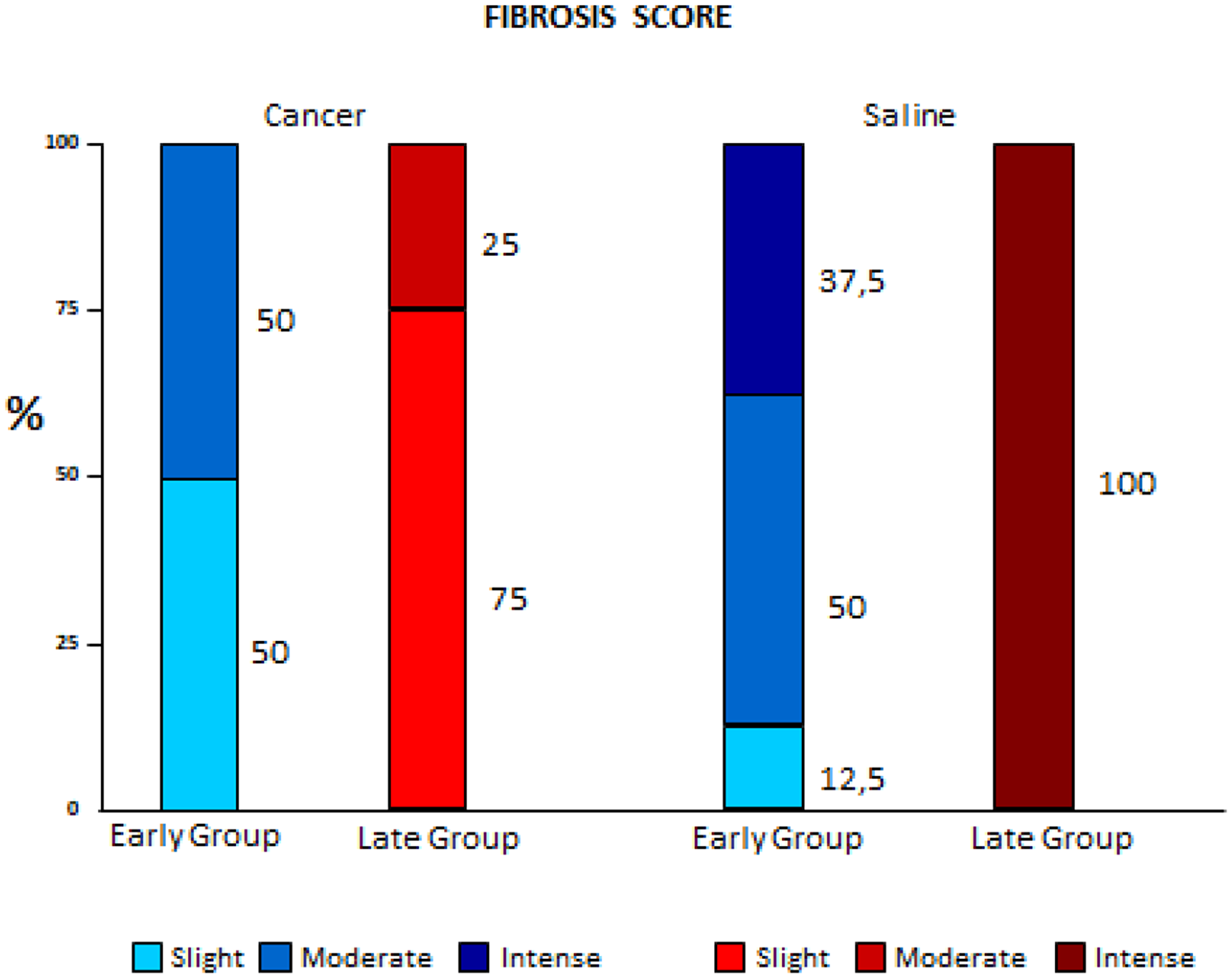Volume 11, Issue 21 of @Oncotarget reported that an experimental study aimed at evaluating whether pleural neoplastic disease is associated with the degree of pleural fibrosis over time caused by talc pleurodesis.
Animals were randomized into two groups: Cancer group that received an intrapleural injection of Lewis cells or Saline group that received a saline injection.
Half of the animals in each group were euthanized 24 hours after pleurodesis; the remaining animals were killed after 8 days.
In Late CG group pleural adhesions had the lowest scores; we found intense fibrosis only in SGs. VEGF and LDH levels had increased in animals with cancer, particularly in the Late group.
Dr. Rodrigo Olivio Sabbion from the Division of Thoracic Surgery, Instituto do Coracao, Hospital das Clinicas HCFMUSP, Faculdade de Medicina, Universidade de Sao Paulo said, "Neoplastic pleural effusion is frequent and associated with quality commitment and life expectancy of patients due to the spread of the disease."
"Neoplastic pleural effusion is frequent and associated with quality commitment and life expectancy of patients due to the spread of the disease"
- Dr. Rodrigo Olivio Sabbion, The Division of Thoracic Surgery, Instituto do Coracao, Hospital das Clinicas HCFMUSP, Faculdade de Medicina, Universidade de Sao Paulo
Several factors may interfere with pleurodesis results, the presence of mesothelial cells exposed to the talc is fundamental for better effectiveness in promoting pleural symphysis.
However, the degree of neoplastic pleural involvement would not be solely responsible for the success or failure of pleurodesis when using talc.
There are no studies that directly correlate the degree of pleural involvement in malignant disease with the final result of pleurodesis.
Therefore, the primary objective of this study was to evaluate whether the time course of the neoplastic pleural disease is associated with the score of pleural fibrosis in mice submitted to talc pleurodesis.

Figure 1: Comparison of fibrosis variation between early and late pleurodesis and between cancer and saline groups.
The secondary objectives were to describe the changes in pleural fluid levels of inflammatory mediators activated by pleurodesis at different times during the evolution of pleural neoplastic disease, as well as analyze whether the time course of the neoplastic pleural disease is the factor that influences the safety of talc pleurodesis in mice.
The Sabbion Research Team concluded in their Oncotarget Research Article that according to their findings, the greater neoplastic pleural involvement may result in a lower pleural barrier in relation to talc dispersion due to a lower amount of mesothelial cells and higher indices of pleural cytokines.
Among these, the main one would be the VEGF which with the increase in pleural permeability, leaves the channels more open and prone to the passage of talc into the bloodstream, thus furthering inflammation in the mouse and consequently becoming less safe.
Sign up for free Altmetric alerts about this article
DOI - https://doi.org/10.18632/oncotarget.27610
Full text - https://www.oncotarget.com/article/27610/text/
Correspondence to - Rodrigo Olivio Sabbion - [email protected]
Keywords - pleural effusion, lung neoplasia, pleurodesis, metastasis, talc
About Oncotarget
Oncotarget is a weekly, peer-reviewed, open access biomedical journal covering research on all aspects of oncology.
To learn more about Oncotarget, please visit https://www.oncotarget.com or connect with:
SoundCloud - https://soundcloud.com/oncotarget
Facebook - https://www.facebook.com/Oncotarget/
Twitter - https://twitter.com/oncotarget
LinkedIn - https://www.linkedin.com/company/oncotarget
Pinterest - https://www.pinterest.com/oncotarget/
Reddit - https://www.reddit.com/user/Oncotarget/
Oncotarget is published by Impact Journals, LLC please visit http://www.ImpactJournals.com or connect with @ImpactJrnls
Media Contact
[email protected]
18009220957x105


